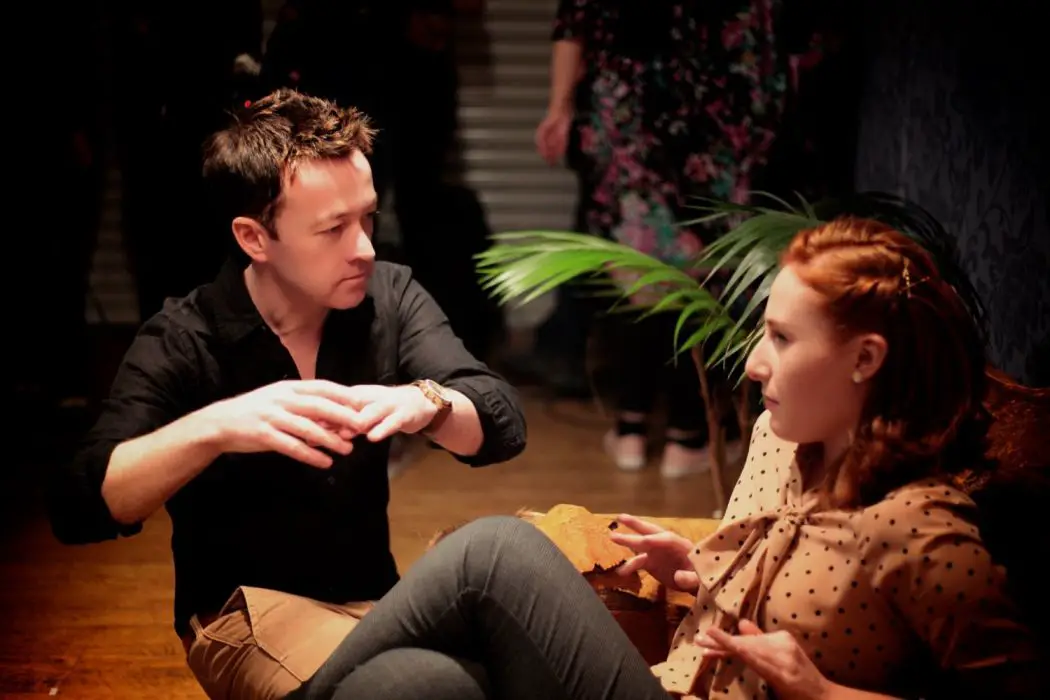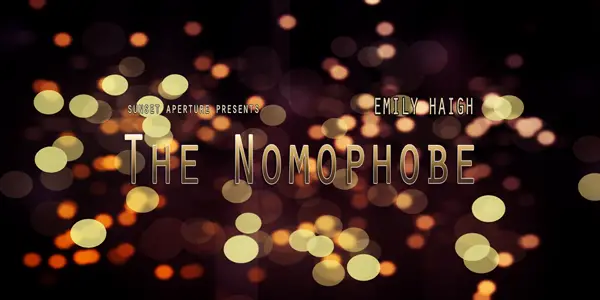The Implications Of Smartphone Addiction: An Interview With James Hughes, Director Of THE NOMOPHOBE

The digital revolution has changed near enough every aspect of our lives, and in many ways enhanced our day to day. However, there’s no denying that we are currently facing an epidemic of smartphone addiction. Whether you are sat on the tube or bus, in a restaurant or even on a beach, chances are you’re surrounded by people fixated by the bright light in the palm of their hand.
The Nomophobe is a short film set out to explore exactly what the impact of smartphone addiction is having on society. 21 year old Madison Ashley-Cooper, played by Emily Haigh, has an unhealthy obsession with her smartphone, impacting relationships with her family and boyfriend. Her addiction becomes such a concern that her Mother resorts to tricking her into a psychiatry session. The question The Nomophobe raises is whether this level of addiction is now becoming the norm.
The Nomophobe is brought to us by Sunset Aperture, a London based film production company. Despite only being founded in 2016, Sunset Aperture have already had success with two shorts The Velvet Abstract and The Inuring, which are currently on the festival circuit and have both been awarded with a slot in the official selection at LA’s Silicon Beach Film Festival.
We caught up with the founder of Sunset Aperture, James Hughes, to find out more about The Nomophobe.
Holly Wyatt for Film Inquiry: Despite the first smartphone being released back in 1995, it was Apple who really changed the game in 2007. When do you feel that smartphones really begun to become such a huge part of our lives?
James Hughes: When Steve Jobs unveiled the iPhone in 2007, and in particular how our fingers could be used to scroll through content, there were gasps in the audience. By removing those clunky keyboards and making everything accessible by touch, Apple had sought to revolutionise the smartphone. But their unveiling did much more than that, it revolutionised the human condition.

The ability to scroll, pinch, touch, made the smartphone effortless to use, and hence addictive. Other brands quickly followed suit. Soon, the market was flooded with touchscreen smartphones. As the technology evolved, by late 2009 nomophobia was sweeping the planet.
The smartphone was no longer something we used, it was something that used us. It was the one in the control. The shiny display, the games, the Apps, the emails, the social networks, the 3G Internet, were just too much to resist. It was a technological overload in our pocket. There was no turning back.
When did you get the idea for The Nomophobe?
James Hughes: As anyone knows, when we commute it is hard not to notice how quickly people reach for their smartphone once on-board. This addiction to looking down is spreading to the next generation even faster. Whether the smartphone has become the greatest gadget we have ever owned, or simply an excuse not to communicate verbally, has been studied at length.
So much so that there is now an official test to determine if you suffer from nomophobia – the fear of being without your smartphone. As a storyteller I am always observing life around me – watching for moments. Consequently, the smartphone society in which we now exist compelled me to write a story to reflect the times we are living in.
The story itself took a year of development, the longest I have ever done for a short film. This is because it was essential for me to capture this moment in time with the right balance of humour and drama. The locked script of The Nomophobe now does this and it also one of the most visual scripts I have ever written.
The protagonist, Madison, is experiencing a particularly extreme case of smartphone addiction. Has this been exaggerated for dramatic effect, or is this level of addiction a reality for some people?
James Hughes: The addiction that Madison experiences is one that many in society share. She does not realise she has an addiction, for her, like everyone else, she simply enjoys her smartphone. Her life and connections exist within the display.
Smartphones do not come with health warnings so no one considers them an addiction. Madison very much reflects who we have become. This is something I have discussed at length with our lead, Emily Haigh, whose innate ability to understand and elevate a character is something I witnessed at first hand on our last film together.

The Nomophobe itself shines a spotlight on the audience – they have all checked their phone before switching it off to watch the film. The addiction is in the audience. Madison merely reflects that audience. As a result I believe many will connect with her story and the consequences of her addiction.
What are your predictions for our relationships with smartphones?
James Hughes: Ironically enough, Apple, who were responsible for changing society, are now trying to do it again and place the addiction into smart watches. Although the Apple Watch and the many others on the market have yet to grab our addiction the way the smartphone did so instantly.
But the smartphone itself is reaching a climax in society and may have actually gone passed it. The smartphone is dying. Within five to ten years it will be gone from our pockets. Artificial Intelligence will become so advanced that it can be placed inside normal glasses, other wearables, and even sensors in our body. The digital world will become so immersive that touching a screen will seem strange to us. So this nomophobia we are currently experiencing is a brief moment in time.
Technology will confine it to the past. We are evolving at speeds not seen before and developers are keen to be the first to introduce the next big thing. Virtual reality headsets are already leaking into the marketplace. These will evolve into MR devices (Mixed Reality) in which our world is merged into a new environment.
As a result the addiction we have with our smartphones is nothing in comparison to the addiction that is coming. The ability to project our thoughts, to see our digital world on any object, to experience anything through sensors and wearables, will make the smartphone become what it tried to replace: the clunky devices we never liked.
You’re currently in the pre-production of The Nomophobe. What are your hopes for the film?
James Hughes: I want to capture this moment in time and give it a cinematic relevance to audiences. It is a film I am very passionate about bringing to the screen. Therefore I have been meticulous in its pre-production designs and plans.
Once we have the film in the can, I am keen to show it to as many international audiences as possible through the film festival circuit. So that audiences can reflect on this moment in time, to step back from their smartphones and watch what they have become. The Nomophobe is a film that taps into the zeitgeist and hopefully encapsulates it.

What other projects does Sunset Aperture have in store for us?
James Hughes: Sunset Aperture has already released two short films simultaneously, The Velvet Abstract, and The Inuring, which are now on the film festival circuit. Along with these, we are busy working on another short film alongside The Nomophobe, before moving into features from 2018 onwards.
The first of these features will be The Inuring, revealing the full extent of the story that the current short film release briefly touches on. Sunset Aperture is still a young company, but it is a very ambitious one. The dream is that when audiences see the Sunset Aperture logo, they have confidence in it – the logo ignites an excitement that they are in good hands.
Follow The Nomophobe’s journey on Twitter, Facebook and Instagram and be sure to check out Sunset Aperture on Vimeo.
Does content like this matter to you?
Become a Member and support film journalism. Unlock access to all of Film Inquiry`s great articles. Join a community of like-minded readers who are passionate about cinema - get access to our private members Network, give back to independent filmmakers, and more.













